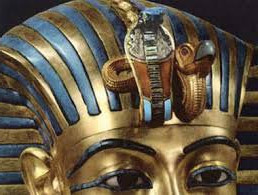Prologue
Snakes have long held a place in the folklore and superstitions of various cultures around the world. These enigmatic creatures, often symbolizing both danger and wisdom, have inspired a rich tapestry of beliefs and myths. In this article, we'll delve into the captivating world of snake-related folklore and superstitions from different corners of the globe.
Snakes in Mythology and Symbolism
Ancient Egypt

In ancient Egyptian mythology, the serpent was a symbol of rebirth and transformation. The uraeus, a rearing cobra, adorned the crowns of pharaohs, signifying protection and divine authority. The Ouroboros, a snake eating its own tail, represented the eternal cycle of life, death, and rebirth.
Hinduism
In Hinduism, the snake is associated with various deities, most notably Lord Shiva, who is often depicted with a cobra coiled around his neck. The serpent, in this context, represents power and destruction, as well as the potential for renewal.
Norse Mythology
Norse mythology features the Midgard Serpent, known as Jormungandr, a colossal serpent that encircles the world. Jormungandr symbolizes chaos and cosmic balance, creating a sense of intrigue and dread.
Folklore and Superstitions
Mediterranean Region
In Mediterranean cultures, the belief in the "evil eye" is prevalent. It's said that a person can curse another by giving them a malevolent glance. Snakes, due to their perceived ability to cast a withering gaze, are often associated with this belief.
Western Folklore
In Western folklore, the idea of a snake's forked tongue is linked to deceit and lies. The serpent is frequently portrayed as a cunning and deceptive creature in stories and fables.
Asia
In some parts of Asia, snakes are associated with both good and bad luck. For example, in Chinese culture, the snake is a symbol of wisdom, but it's also linked to danger and fear.
African Beliefs
In Africa, snakes hold various cultural significances. They can represent fertility, rebirth, and protection, but they can also be symbols of evil and witchcraft.
Snake Handling and Rituals
In certain regions, snake handling and rituals have been practiced as a form of spiritual expression. In the United States, some Christian denominations engage in snake handling as a demonstration of faith, while in parts of Africa and Asia, snake rituals are performed to seek blessings, protection, or healing.
And Finally
Snakes are deeply woven into the fabric of human culture, representing a spectrum of meanings and emotions, from fear and danger to wisdom and protection. The diverse beliefs and myths surrounding snakes highlight the profound influence these creatures have had on the human imagination throughout history. As we explore these rich traditions, we gain a deeper understanding of the enduring fascination with these remarkable reptiles.